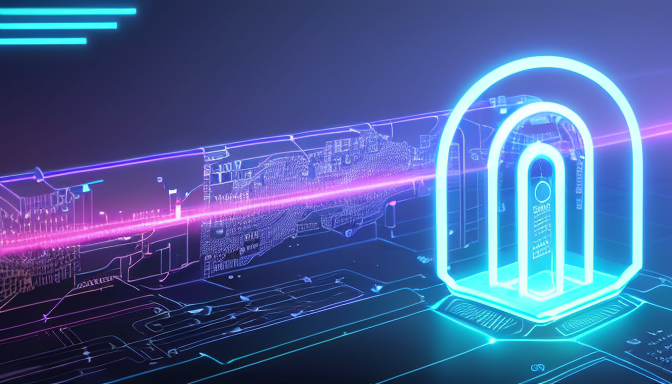Welcome to the future of the internet—Web3! This revolutionary shift is not just a buzzword; it’s a game changer that’s shaking up how we think about online privacy and security. Imagine a world where you, and only you, have the keys to your digital kingdom. No more handing over your personal data to giant corporations that treat it like a commodity. Instead, Web3 empowers you to own your data, thanks to the magic of blockchain technology. But what does that really mean for you?
In this new digital landscape, decentralization is the name of the game. It’s like moving from a crowded city where everyone knows your business to a peaceful countryside where you can live freely and securely. With Web3, your data isn’t stored in a single, vulnerable location. Instead, it’s distributed across a network, making it significantly harder for bad actors to access it. This means enhanced privacy and a greater sense of control over your personal information.
Moreover, the introduction of advanced security protocols in Web3 is akin to upgrading from a flimsy lock on your door to a high-tech security system. These protocols not only protect against cyber threats but also ensure that your interactions remain private and secure. As we embrace this decentralized web ecosystem, we’re not just users anymore; we’re empowered participants in our digital lives. So, are you ready to take control? The future is here, and it’s time to unlock the full potential of Web3!
The Decentralization of User Data
In the rapidly evolving digital landscape, decentralization is taking center stage, and it’s reshaping how we think about our personal information. Imagine a world where you, and only you, control your own data. That’s the promise of Web3 technologies! By leveraging blockchain, users can take back ownership of their data, moving away from the traditional model where large corporations hold all the power. This paradigm shift not only enhances privacy but also minimizes the risk of data breaches, which have become alarmingly common.
The decentralized web ecosystem introduces innovative concepts such as cryptocurrencies, NFTs (non-fungible tokens), and smart contracts. Each of these elements plays a crucial role in ensuring that users have more control over their digital identities. For instance, with NFTs, individuals can prove ownership of their digital assets without relying on a centralized authority. This is akin to having a digital vault where you keep your valuables, and only you hold the key!
Moreover, the implications of this decentralization are profound. Users can engage in peer-to-peer transactions without intermediaries, reducing costs and increasing efficiency. With a system built on trustless interactions, the need for third-party validation fades, empowering individuals in ways we never thought possible. In this new landscape, privacy isn’t just a feature; it’s a fundamental right. As we embrace this shift, it’s essential to understand the tools at our disposal and how they can protect our online identities.

Enhanced Security Protocols
In the ever-evolving digital landscape, Web3 stands out as a beacon of hope for online security. Imagine a world where your data isn’t just floating around in the hands of big corporations, but is instead safeguarded by advanced blockchain technology. This is the beauty of decentralization. By distributing data across a network of nodes, Web3 minimizes the risk of breaches that often plague traditional systems. You might ask, “How does this actually work?” Well, let’s break it down.
At the heart of Web3’s security enhancements are cryptographic techniques that ensure your information remains private and secure. These protocols are not just technical jargon; they form the backbone of a safer online experience. For instance, when you engage in transactions using cryptocurrencies or interact with NFTs, your identity is protected through complex algorithms that make unauthorized access nearly impossible. It’s like having a digital vault that only you can unlock!
Furthermore, the decentralized web ecosystem empowers users by giving them control over their own security settings. No more relying on a single entity to protect your sensitive information. With Web3, you have the autonomy to choose how and when your data is shared. This shift not only enhances security but also fosters a sense of trust in online interactions. As we embrace this new era, the potential for a more secure and private internet is not just a dream; it’s becoming a reality.
Frequently Asked Questions
- What is Web3?
Web3 refers to the next generation of the internet that focuses on decentralization, user empowerment, and enhanced privacy. It leverages blockchain technology to give users control over their data and online interactions.
- How does Web3 enhance online privacy?
Web3 enhances online privacy by allowing users to own their data rather than relying on centralized platforms. This means less data exposure and more control over who accesses personal information, making it harder for unauthorized entities to exploit user data.
- What security protocols are introduced in Web3?
Web3 introduces advanced security protocols that utilize blockchain’s inherent features, such as encryption and immutability. These protocols provide a robust defense against cyber threats, ensuring safer online experiences for users.
- Can I trust Web3 technologies?
While no technology is completely foolproof, Web3’s decentralized nature and enhanced security measures significantly reduce risks associated with data breaches and cyber attacks. Trust is built through transparency and community governance.